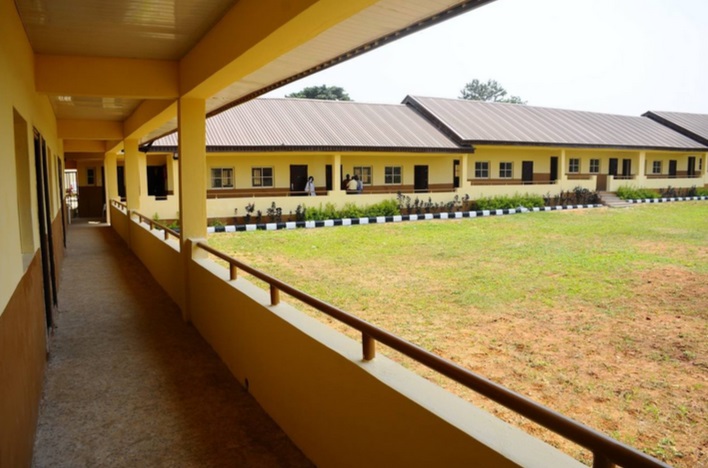
OPINION: Why FG Took Over Schools in 1975 – Pa Fagbulu
 Dr. Amiel Fagbulu, 80, who was part of the Federal Government’s arrangement to take over schools in 1975 has said that the arrival of a new child should ordinarily be a thing of joy not only for the lucky parents but also for those around who love them and know the hazards and hardships of child-bearing.
Dr. Amiel Fagbulu, 80, who was part of the Federal Government’s arrangement to take over schools in 1975 has said that the arrival of a new child should ordinarily be a thing of joy not only for the lucky parents but also for those around who love them and know the hazards and hardships of child-bearing.
Fagbulu who wrote this piece on the launch of Baptist Central Elementary School, Ilare, Ile-ife said those who know what it means for a child to learn in a pleasant environment cannot but rejoice with those state governments that are providing first-class physical facilities for the children to learn in.
He said that most people take for granted the fact that governments are only doing what they need to do by providing functional, spacious and convenient facilities for the children in schools, adding, “they hardly pause to think of the extreme cost of those facilities and the juggling of budgets that has to be done to meet other needs of parents for good roads, health centres, safe drinking water, and to some extent, work.
According to him, those governments that are shunning cheaper, less safe and effective school structures and are at the same time increasing the number of children going to school are not unaware of the need to ‘feed and clothe’ these children who need to be attended to properly
. It is a heroic act and one of great commitment for anyone to take up the expensive challenge of putting up many purpose-built learning institutions across a state as large as Osun, and providing at the same time food, uniform and instructional materials that are delivered at the cutting edge of technology.
“Fortunately,” he continued, “these children have no reason to yell now because they are provided with almost everything that they need to enjoy while schooling, learning and securing their future. The quality and quantity of teachers have been assured; parents have also been relieved of the burden of paying for a thousand and one things for their children’s education; and children have not had it so good in Nigeria since independence. They should therefore guard what they have been given on a platter of gold, jealously.”
Comparing the situation of schools decades ago to what it is in Osun now, Fagbulu said: “I taught at the Government College, Ibadan. I was Principal of Edo College, Benin City. As an inspector, I visited educational institutions from Warri to Ilaro. As a Chief Inspector, I knew intimately all secondary schools in the old Western Region. Above all, I was part of the Aiyetoro Comprehensive High School dream. I feel qualified therefore to say that the standard of the provisions being made systematically for children of the State of Osun match and in some respects, surpass what those schools of the past that have become legends had.”
His words: “Now that schools are really schools and qualified teachers and not quacks are in charge of the future of our children, some of us who have been around for almost too long are already concerned about the future of the schools that are being celebrated today.
“There are many strategies that could be adopted to safeguard the future of these buildings. An obvious one is for government to employ one or two guards to keep watch around the clock, especially after hours. Another is for the buildings to be handed over to the community for upkeep and to secure.
The third is for the Local Government in which the school is located to take responsibility for keeping them properly maintained and secure. Another is to have a dedicated body to do nothing more than maintain all such facilities as they become commonplace in all our towns and cities.
“The demerit of the first is that because schools belong to the people, it is an absolute disservice to the community for it not to make an input – any input – to providing education for its children. What one gets free is easier forgotten than what one really worked for.
“Handing the building over to the community has its downturn. Do the people feel committed enough to undertake the responsibility of keeping the school absolutely clean at all times? What if the will is there but the wherewithal to accomplish what is desired is not? These and other questions need to be asked and answered satisfactorily before any action is taken in that direction.
“Of the first three options, the most appealing is that the schools be handed to the LGA to maintain and guard vigilantly. That body, unlike communities, can be sanctioned if it fails to perform this duty. Also the budgetary obligations can be met by any LGA that is serious and responsible. And since the LGA is supposed to be the people’s government, the communities in which they are situated will be involved in one form or the other in their upkeep and proper use.
Finally, a Schools Maintenance Board that will also have a training school attached to it, to train and certify janitors at the highest level to upkeep schools, and public and private facilities, could be established to do the work. Expertise would be developed and costs would be minimized by offering paid services to institutions and private companies. If properly managed, it could be the answer to elongate the lives of these structures.
“We are witnessing history today. Let us ensure that those who made it possible are there tomorrow.”



